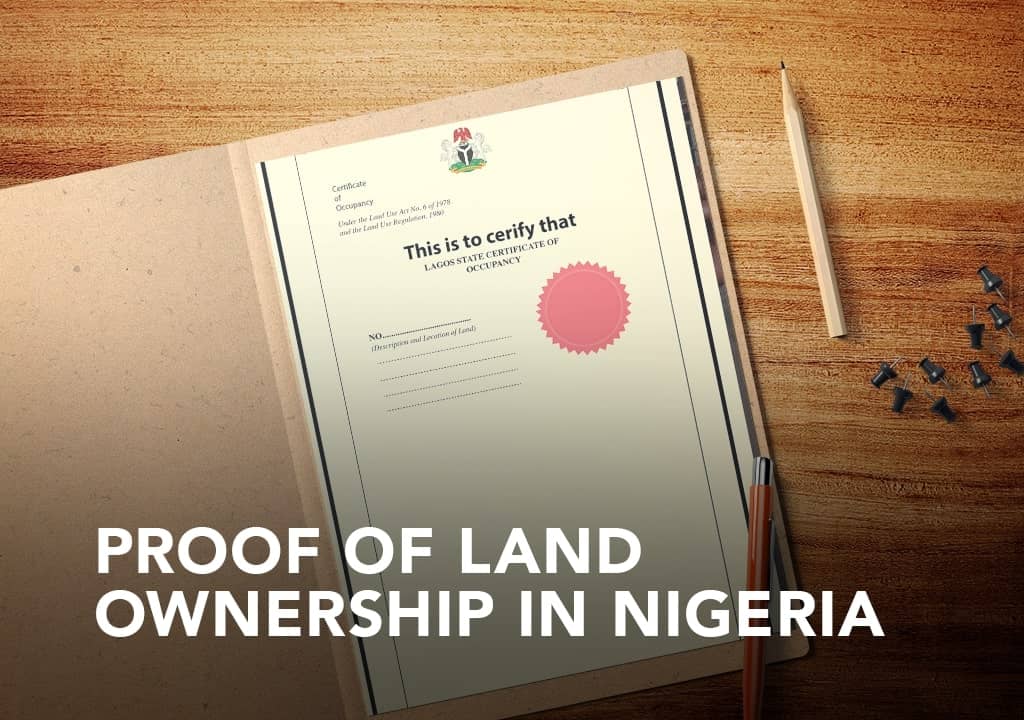Ever dreamt of owning your own piece of the Nigerian dream? I know I have.
But, hold on a sec, because navigating the world of real estate can get tricky.
Imagine buying your perfect plot of land, only to discover someone else claims they own it too? Not cool.
That’s where understanding land ownership documents comes in – land ownership connotes the rights to exclusive possession and unfettered access to it.
While these land documents are many, the most important document proving land ownership in Nigeria is a Certificate of Occupancy (C of O).
It’s your golden ticket to proving you’re the rightful owner, and this article will tell you all about it (and more!)
So, let’s dive into the important documents for proof of land ownership in Nigeria.
Important Documents for Proof of Land Ownership in Nigeria
These are the documents needed for your proof of land ownership.
Note: It is important to note that these documents do not replace one another.
- Certificate of Occupancy (C of O)
- Deed of Assignment
- Survey Plan
- Excision
- Receipt
- Governor’s Consent
1. Certificate of Occupancy
In Nigeria, the main document that shows you own a piece of land is the Certificate of Occupancy (C of O).
The state government gives you this official document, and it confirms that you legally own a particular piece of land.
Importance of a Certificate of Occupancy (C of O)
A C of O is crucial for several reasons:
-
Proof of Ownership: It provides indisputable evidence that you legally own the land.
-
Security: Having a C of O discourages land grabbers (“Omo-Onile”) from trying to claim ownership.
-
Transactions: You need a C of O for real estate deals, like selling, buying, or getting a mortgage for the land.
2. Deed of Assignment:
A Deed of Assignment is an essential legal land document for recording the sale of land.
Additionally, it transfers interest and title in the real estate property from one party to another, starting from the commencement date stated in the document.
3. Survey Plan:
A survey plan is another important real estate document that gives accurate details of the measurement of the land and other important descriptions such as the location, owner’s name, etc.
4. Land Excision:
The government releases land to indigenous people or settlers through a process called land excision.
If isn’t done before you purchase the land, you will still be required to do it down the line because it is a form of compensation to the original landowners.
5. Receipt:
In real estate transactions, a receipt indicates that the seller has received the purchase price from the buyer after the property has been sold.
6. Governor’s Consent:
This document shows the consent obtained from the government on a land transaction through his signature. Without it, the transaction is deemed illegal.
How to Prove Land Ownership in Nigeria
According to the court of appeal, in cases of dispute, these are methods to prove your ownership of the land.
- Through traditional historical evidence.
- By providing the documents of title.
- Evidence of ownership and possession over an adequate period.
- Proving possession of adjacent and connected land in circumstances that make it probable that the owner of such adjacent and connected land owns the land in dispute.
Tips To Consider Before Purchasing Land
- Ensure you purchase land or properties from a reputable real estate company with a good track record
- Do your research and understand what the essential documents are and what they look like
- It’s smart to talk to a lawyer and have them check your property papers before completing a land deal.

